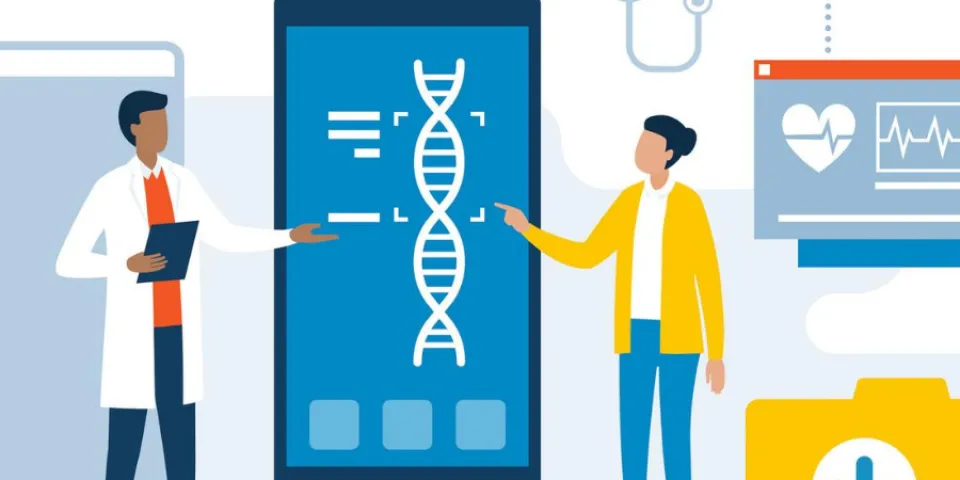Latest 
 Career Development Denise Alexander
Career Development Denise Alexander
Recent Blog Posts


If you’re looking to enter the healthcare industry, a great option to consider is medical coding. Medical coders play a vital role in ensuring healthcare records are properly interpreted and assigned with the correct information for insurance purposes.
Medical coding is a growing field, with the U.S. Bureau of Labor Statistics (BLS), predicting employment of medical records and health information technicians to grow 7% from 2024-2034.
One common question that comes up when considering entering the medical coding field is whether to get an associate degree or a diploma.
Here’s a quick breakdown of both pathways and how you can determine which is best for you:
If you have no previous experience in medical coding, Herzing’s Medical Coding Diploma program is a great place to start! Earning your diploma in medical coding will prepare you to work a variety of entry-level jobs in the healthcare industry, including coding specialists, department coders or inpatient coders.
Your diploma will set you up to analyze medical records, classify diagnoses/procedures, assign codes and more. You will work with quite a bit of data and data entry, so it’s important to be detail-oriented and have an interest in computer software programs.
Herzing’s medical coding diploma program involves courses in anatomy, physiology, disease processes, medical terminology and much more. In as few as 12 months, you can be adequately prepared to sit for the Certified Coding Associate (CCA) examination from the American Health Information Management Association.
Earning this certification is key to ensuring your ability to work, and Herzing sets you up to master it. If you are interested in attending school at Herzing for your diploma in medical coding, you must meet the following requirements:
If you already hold your diploma and are looking to advance your career, you might consider earning your Associate Degree in Medical Coding. Just like with a diploma, the program prepares you to analyze medical records, classify diagnoses/procedures, assign codes and more. However, certain work environments and job positions may require more advanced knowledge and experience, which is where an associate degree would be beneficial.
Although you learn similar concepts to the diploma program, Herzing’s associate degree program prepares you with a more advanced set of skills. Although it is a longer program to complete compared to the diploma, it can be completed in as few as 20 months. At the end of the program, you’ll be prepared for coding in in-patient and outpatient care, and will be prepared to become certified through the Certified Coding Associate (CCA) examination.
With your associate degree, you will also be eligible to further certify yourself with the Certified Coding Specialist (CCS) qualification after one year of experience in your field. You also might be qualified to work in higher-level positions.
As with our diploma program, if you are interested in attending Herzing for your diploma in medical coding, you must meet these requirements:
Your diploma prepares you to apply for entry-level positions, while your associate degree can help you further your skills and provide opportunities for higher-level positions with higher salaries.
Medical coders play a vital operations role, whether in a hospital, nursing facility or physician’s office. Medical coders review records of services given to patients at healthcare facilities and then assign them appropriate diagnosis codes for use by a medical biller. Medical billers then take those codes and use them to submit claims to whoever is responsible for the patient’s bill – usually insurance companies. While they work closely together, medical billing and medical coding are not the same things.
While the work can be similar for those with a diploma and an associate degree, responsibilities will vary depending on the setting you work in and your level of education. For example, you may qualify for higher-level responsibilities if you have an associate degree rather than a diploma. Similarly, jobs that require a higher degree tend to have a higher annual wage than jobs requiring only a diploma. However, earning your diploma is a great option if you’re looking for a quick way to enter the healthcare field.
Once you earn your degree, you will be able to focus on either outpatient coding such as working in clinics, group practices and physician’s offices, or inpatient coding that includes hospitals and long-term care facilities. Medical coding can be a very rewarding career!
BLS pay estimates calculate the median annual wage for various occupations. Per the BLS the median wage for an occupation is: "The wage at which half of the workers in the occupation earned more than that amount, and half earned less. Median wage data are from the BLS Occupational Employment and Wage Statistics survey." Bureau of Labor Statistics (BLS), U.S. Department of Labor, Occupational Outlook Handbook 2024. BLS median wage estimates do not represent entry-level wages and/or salaries. Multiple factors, including prior experience, age, geographic market in which you want to work, and degree level and field, will affect career outcomes, including starting salary and earnings as an experienced employee. Herzing neither represents that its graduates will earn the median salaries calculated by BLS for a particular job nor guarantees that graduation from its program will result in a job, promotion, particular wage or salary, or other career growth.
Get the latest news you need to know, from study hacks to interview tips to career advancement. Have it delivered right to your inbox biweekly.